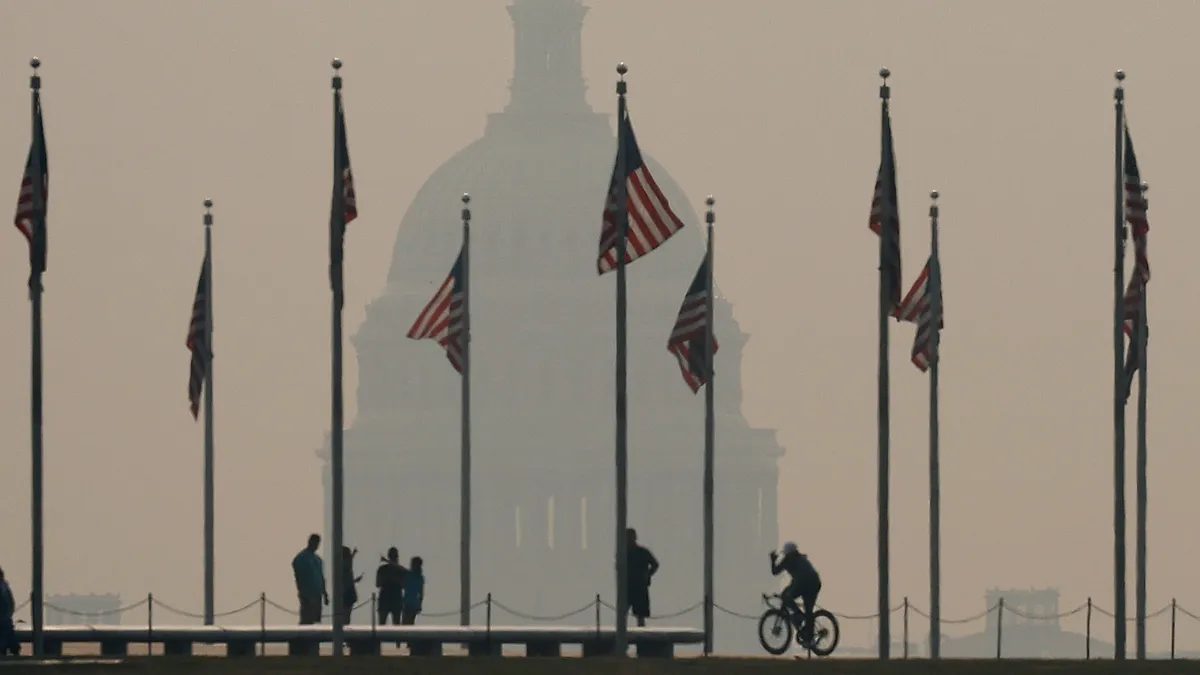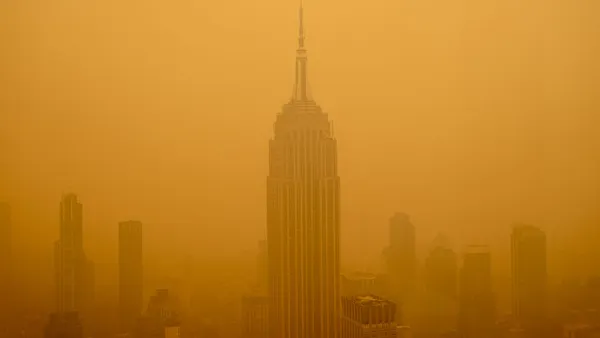Dive Brief:
- Dozens of labor, environmental and health groups are pushing the Federal Emergency Management Agency to explicitly define extreme heat and wildfire smoke as major disasters that can receive federal disaster relief funds.
- The coalition, which includes the AFL-CIO, the National Council for Occupational Safety and Health and the Center for Biological Diversity, filed a petition to FEMA on June 17 that, if accepted, would kick off a rulemaking process to amend the agency’s regulations under the Stafford Act, which guides how the federal government distributes funds following natural disasters.
- Some city officials and federal policymakers pushed for extreme heat to be added to the Stafford Act last year, which was by far the world’s hottest on record and left some U.S. cities scrambling to prevent heat-related illness and deaths. Even so, FEMA Administrator Deanne Criswell has said she doesn’t think extreme heat needs to be added to the Stafford Act for communities to get funds.
Dive Insight:
As climate change makes heat waves and wildfire smoke events more frequent and severe, cities are scrambling to keep up with the public health impacts.
“State and local communities have been stepping up their preparation to deal with these threats but it's not enough,” Will Humble, executive director of the Arizona Public Health Association, said in a statement. The organization is part of the coalition petitioning FEMA.
When extreme weather events are declared major disasters by the federal government, the affected communities can access several disaster assistance programs. The Stafford Act explicitly states some of the major disasters it covers, such as hurricanes, drought and earthquakes, but it does not list extreme heat or wildfire smoke. While that doesn’t preclude FEMA from viewing such events as major disasters, the agency has never done so.
Most Stafford Act disaster declarations provide assistance for “sudden onset hazards that caused structural damage, such as hurricanes,” according to a June 20 report from the Congressional Research Service. FEMA has less experience leading the response for events that primarily impact public health.
Past presidents have denied disaster declaration requests for extreme heat incidents because the events weren’t large enough in “severity and magnitude,” the CRS report says. The most recently denied request was in 2022, when California Gov. Gavin Newsom asked for a major disaster declaration for wildfires driven by extreme heat.
The coalition of labor, health and environmental groups petitioning FEMA says state, local and tribal governments need the certainty that major disaster funds will be available when future extreme heat and wildfire smoke disasters strike. Governments could use those funds on community solar and energy storage, cooling centers, community resilience hubs, worker protections and air filtration systems, according to a press release from the Center for Biological Diversity.
At least some city leaders share the same perspective. The National League of Cities and U.S. Conference of Mayors sent separate letters to members of Congress last year asking them to pass the Extreme Heat Emergency Act of 2023, legislation that would explicitly include extreme heat in the Stafford Act’s definition of a major disaster.
A top FEMA official disagrees with that approach. “The Stafford Act does not need to be amended to include extreme heat,” FEMA Administrator Deanne Criswell said when testifying before Congress in September. When deciding if an event is a major disaster, the agency mainly looks at whether it exceeds the state and local government’s response capacity, Criswell said.
“If the response to an extreme heat incident exceeds the capacity of a state and local jurisdiction, they are very open to submit a disaster declaration request,” she said. “And we will consider that based on whether or not it exceeds their capacity.”
Adding extreme heat to the Stafford Act could also strain FEMA’s already broad response efforts and exacerbate existing staffing shortages, the CRS report says.












